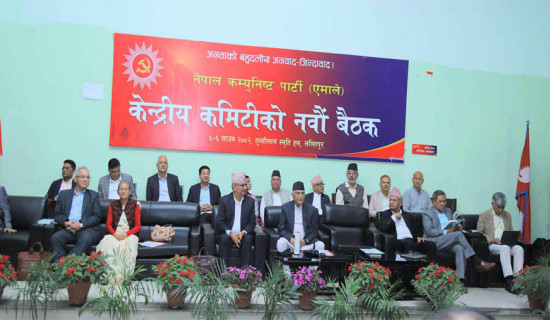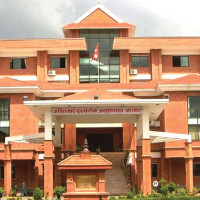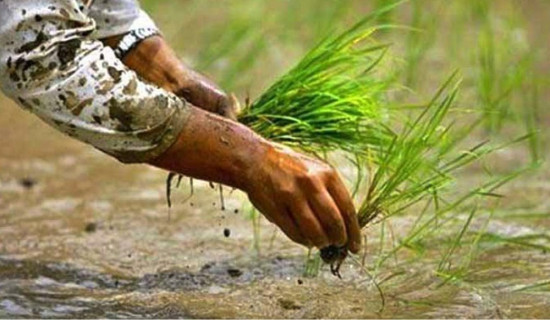- Tuesday, 22 July 2025
International meet on Asiatic wild dog concludes
By A Staff Reporter,Kathmandu, June 8: The Dhole, also known as the Asiatic wild dog (Cuon alpinus) and locally called Junglee Kukur, is one of the most remarkable and elusive pack-hunting social carnivores in Asian terrestrial eco-regions.
Experts have warned that the existing population of Dholes has been declining due to habitat destruction, a decline in its prey populations, and disease transmission from domestic dogs.
To address the declining population and establish conservation measures for the Asiatic wild dog, global experts and conservationists organised the second International Dhole Conference in Nepal from June 1-6.
The Dhole is an endangered carnivore belonging to the dog family. It is found across South and Southeast Asia, predominantly in forests and high-altitude areas.
The conference, hosted at the National Trust for Nature Conservation (NTNC), was conducted by the Dhole Working Group, a part of the IUCN Species Survival Commission's Canid Specialist Group.
The expert group held consultations and meetings to discuss the reassessment of the species for the Red List and to outline National Conservation Action Plans for Nepal, India, and Thailand, which are global population hotspots and current strongholds for Dholes.
During a press meet organised to provide an update on the status of the Dholes, Dr. Nucharin Songsasen of the Smithsonian Institute (USA) and Chair of the IUCN Dhole Working Group said, "The conference provided an incredible platform to expand the network of experts and inspire young professionals to work towards conserving Dholes." She further stated that the working group has been making significant progress in Dhole research, conservation, and awareness through outreach activities over the past nine years.
The meeting benefited from the participation of Dhole researchers, student presenters, government officials of Nepal, media personnel, local community representatives, and grassroots conservationists.
Dholes face conflicts with humans due to livestock depredation, particularly in the Himalayan regions of Nepal, Bhutan, and Northeast India. Ambika Prasad Khatiwada, country representative of Nepal for the Dhole Working Group, said, "Addressing Human-Dhole conflict through consultation with local communities and developing and implementing national and regional plans for long-term conservation actions can help minimize the threats to Dholes."
The discussions resulted in the conceptualization of key actions to protect Dhole populations in Nepal and beyond. These actions include socio-ecological research to assess Human-Dhole conflict compensation and insurance mechanisms to safeguard domestic animals from Dhole conflicts.
Additionally, efforts to increase trans-boundary collaboration across Asian countries to ensure Dhole population connectivity were emphasized. Members of the Dhole Working Group, along with other experts and attendees of the conference, are optimistic that the outcomes of the meeting will be a milestone for Dhole conservation in Nepal and a beacon of hope for safeguarding Dhole populations across South and Southeast Asia.
Although an estimated 250 individuals of Dhole exist in Nepal and each of its range countries, the exact number of individuals has yet to be identified, according to Khatiwada.
Over 40 experts from 13 countries attended the conference in Nepal to outline global priorities and conservation action plans for safeguarding the populations of the Asiatic wild dog 'Dhole'.
















